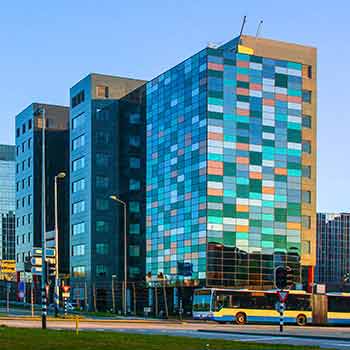Global Political Economy- Period 2
Business & Economics Program
Amsterdam, Netherlands
Dates: mid Aug 2025 - early Jul 2026

Global Political Economy- Period 2
OVERVIEW
CEA CAPA Partner Institution: Vrije Universiteit Amsterdam
Location: Amsterdam, Netherlands
Primary Subject Area: Political Science
Instruction in: English
Course Code: S_GPE
Transcript Source: Partner Institution
Course Details: Level 300
Recommended Semester Credits: 3
Contact Hours: 84
Prerequisites: Some introductory-level knowledge of political science and International Relations as well as of basic (macro-)economics is recommended but relevant concepts will also be explained in class.
DESCRIPTION
This course offers students an introduction to the subject of International Political Economy (IPE). Throughout, the course will be guided by the question to which extent, and how, the current process of globalization is changing the relationship between states and markets, between public regulation and the private economy, between state and capital. Traditionally IPE studies the relationship between 'the economic' and 'political' within the interaction of - patterns of co- operation and conflict between - national states. If anything, the global financial and economic crisis of 2008 and beyond has made clear that this state-centric perspective is no longer adequate. At the same time the crisis has also shown that states, although apparently vulnerable in the face of global market forces, are also crucial when it comes to protecting the workings of global capitalism. This shows that indeed the relationship between states and markets is not a one-way street. In other words, politics and policies are shaped by the interests and activities of transnational (market) actors and by economic globalization but the latter is also driven by politics, and shaped (indeed enabled) by the policy choices that states make. It is from this perspective that this course will examine the various approaches within international political economy; the historical evolution of the global political economy; the globalization of production and the role of transnational corporations; the international monetary system and the globalization of finance; the global financial crisis and the eurozone crisis; the political economy of development; the rise of China and other emerging powers, and the political economy of energy and the environment.
Contact hours listed under a course description may vary due to the combination of lecture-based and independent work required for each course therefore, CEA's recommended credits are based on the ECTS credits assigned by VU Amsterdam. 1 ECTS equals 28 contact hours assigned by VU Amsterdam.
Contact hours listed under a course description may vary due to the combination of lecture-based and independent work required for each course therefore, CEA's recommended credits are based on the ECTS credits assigned by VU Amsterdam. 1 ECTS equals 28 contact hours assigned by VU Amsterdam.







